For months those of us close to the Java Community Process (JCP) have noticed a marked slowdown in development on Java EE 8 JSRs led by Oracle. Indeed there have been many anecdotes of Oracle specification leads themselves stating that they are unable to make adequate progress on Java EE standardization work. We will try to avoid citing those instances specifically to protect these good people at Oracle. Thanks to the openness of the JCP we can demonstrate what is happening using objective publicly available data. Java EE JSRs are required to be operated in the open and all Java EE reference implementations today are open source. Expert group user alias email activity, JIRA issue activity and open source commit activity are all archived and publicly available on java.net and GitHub.
Oracle had already declared a significant delay in shipping Java EE 8. This meant that Java EE 8 would take longer than Java EE 7 despite being far more limited in scope. As you’ll see below if the current pattern of inactivity holds even that delayed release date looks very unrealistic.
As a first important step we have already included data and analysis for some key Java EE 8 JSRs below. We will continue to add the data for more Java EE 8 JSRs as quickly as we can. The general pattern of inactivity is very similar across Oracle led Java EE 8 JSRs and already pretty clear in the JSR analysis we have below. These patterns will only strengthen as we add data for more and more JSRs, so please check back on this section periodically.
JSF
The image below shows the number of emails to the expert group alias by Oracle specification leads. Emails are the principal means the JCP expert group collaborates through and specification lead emails are critical since they are the key decision makers. As can be clearly seen, JSF starts on a strong note but levels off consistently as time progresses.
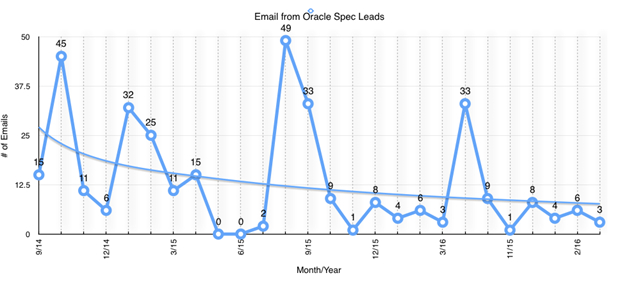
The picture becomes even clearer when we look at the number of issue resolutions by Oracle. As can be seen there is a sudden sharp drop of activity after October 2015. The general trend is downward after a strong start.
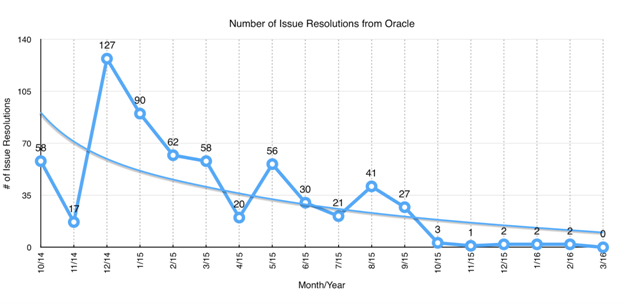
The same pattern is further crystallized when we look at the number of code commits from Oracle.
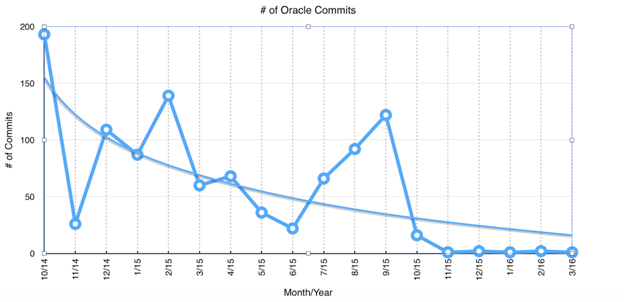
Here is the current declared schedule for JSF:
Early Draft – Q4 2015
Public Review – Q1 2016
Proposed Final Draft – Q3 2016
Final Release – H1 2017
The early draft date was met in October 2015 before the sudden drop in activity occurred. The public review draft is now overdue but because of the lack of activity no progress towards it has happened which means JSF is now already behind by close to five months and things are getting worse as time presses on.
Servlet
The situation for the foundational Servlet specification is very worrisome. For perspective the Servlet 3.1 specification was a minor update to the 3.0 specification. Servlet 4 by comparison is the most significant update to the specification in many years – bringing standard HTTP/2 support to server-side Java developers. Given these facts we should expect significantly higher levels of activity in Servlet 4 as compared with Servlet 3.1. As we can see from the data for emails from Oracle specification leads as well as the number of issue resolutions, the opposite is happening. Activity was low to begin with by comparison to 3.1 and getting even lower as time presses on. In both graphs there is a very short-lived sudden spike representing work done to produce the early draft during the October 2015 time frame.
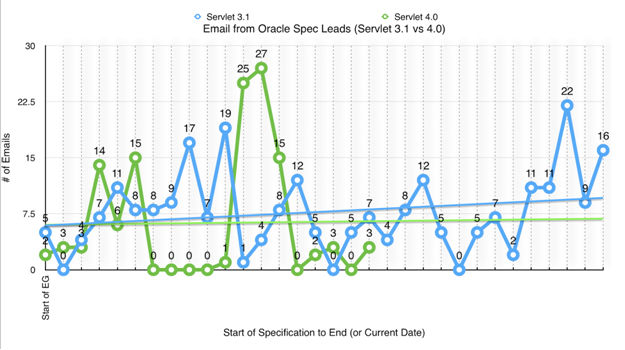
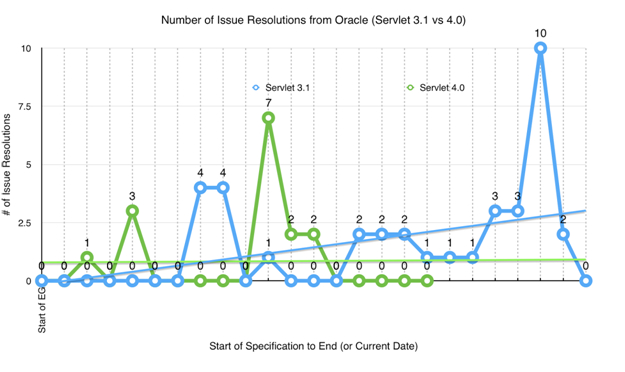
The same pattern is further crystallized when we look at the number of artifact commits from Oracle. Commits to the specification are essentially down by 50% compared with Servlet 3.1. Indeed approximately 40% of the total commits for Servlet 4 was in October of 2015. Activity dropped off after that and there has been only 1 commit in the last four months.
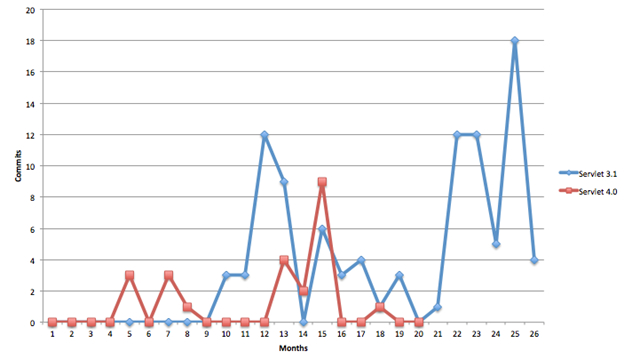
Here is the current declared schedule for Servlet:
Early Draft – Q4 2015
Public Review – Q1 2016
Proposed Final Draft – Q3 2016
Final Release – H1 2017
The early draft date was met in October 2015 as is reflected by the very brief spike in activity. The public review draft is now overdue but because of the lack of activity a public review any time soon is highly unlikely. Servlet is likely behind by close to six months and things are getting worse as time presses on.
JMS
The situation for JMS is quite a bit worse. Activity in the specification was meager all along and is now at a complete dead stop. Comparing email and issue tracker data for JMS 2 and JMS 2.1 tells a very crystal clear story.
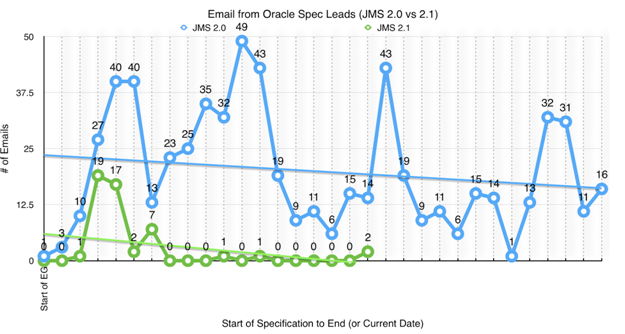
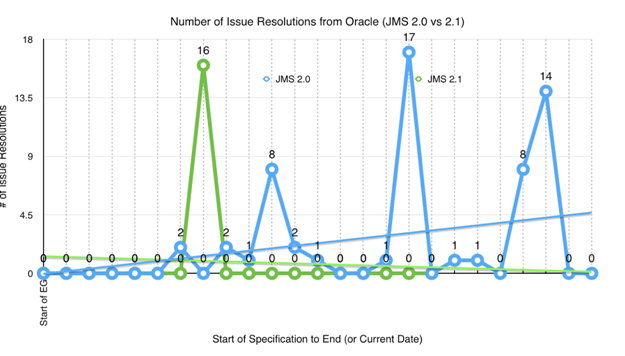
Here is the current declared schedule for JMS:
Early Draft – Q4 2015
Public Review – Q1 2016
Proposed Final Draft – Q3 2016
Final Release – H1 2017
The early draft date was met in October 2015 as is reflected by the very brief spike in activity for JMS 2.1. The public review draft is now overdue but because of the total lack of activity a public review any time soon is highly unlikely. JMS is likely behind by close to six months and things are getting worse as time presses on.